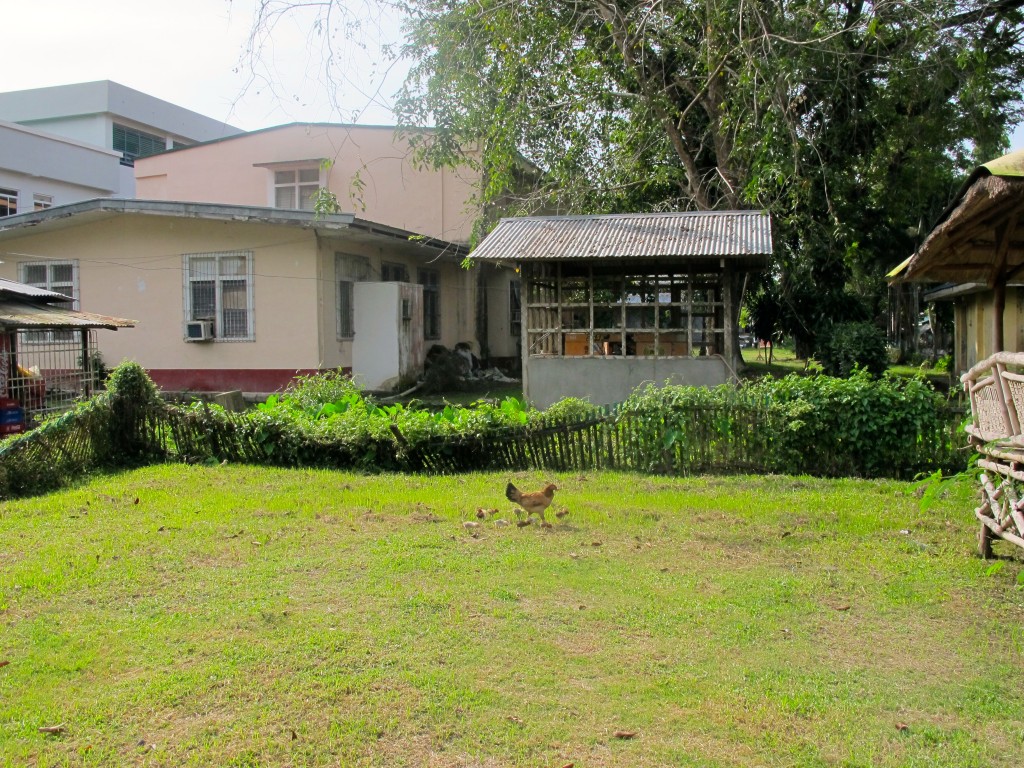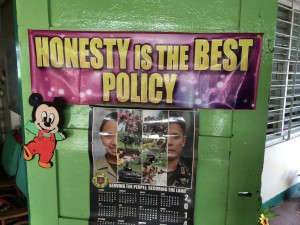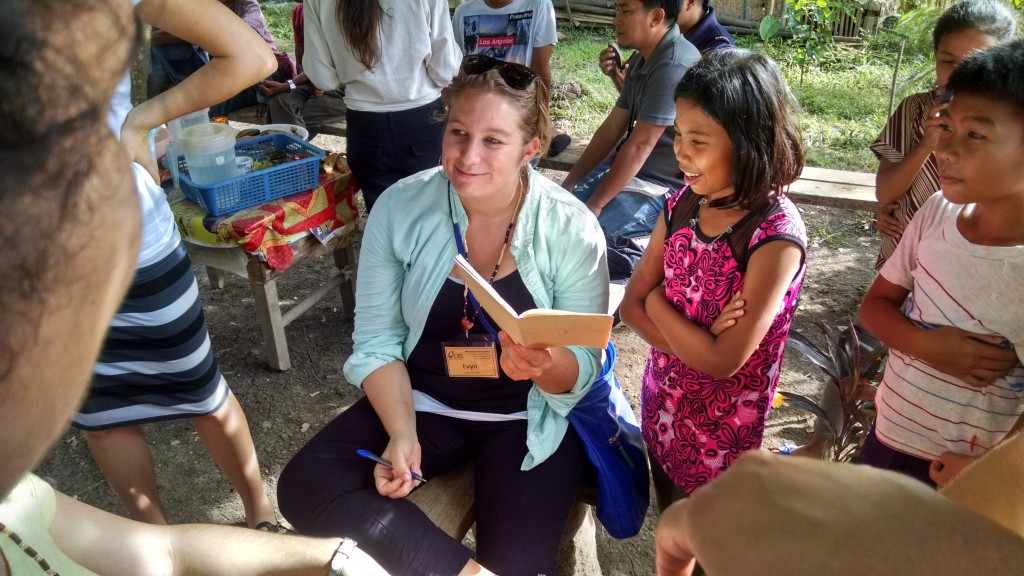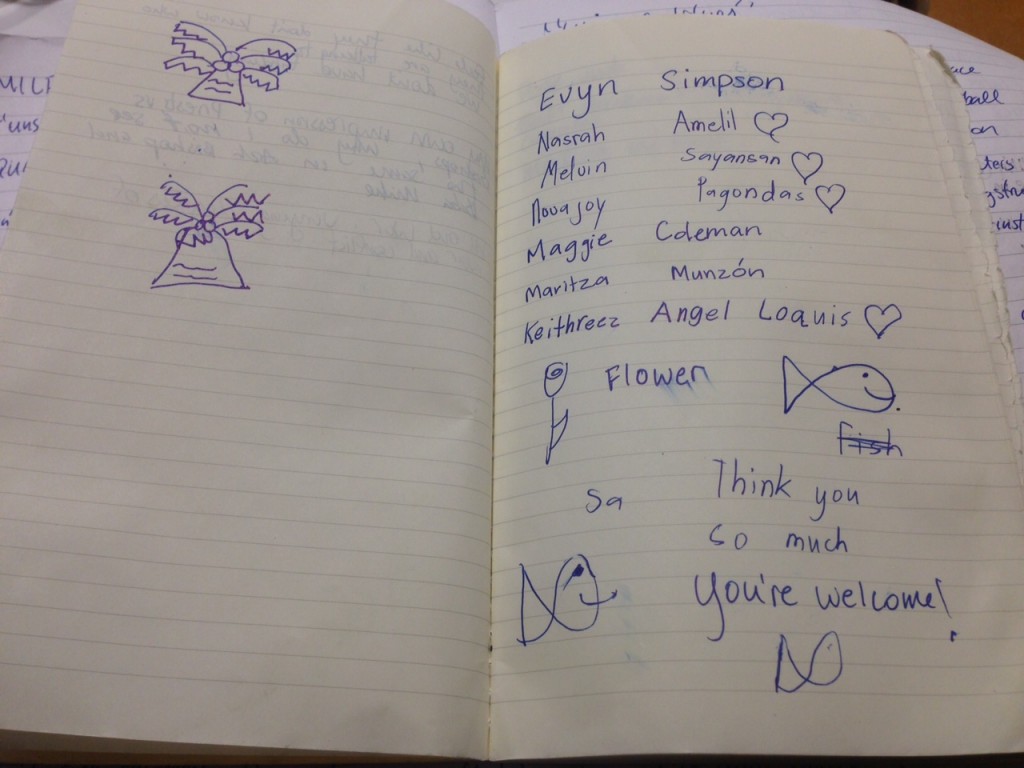Today we received a heartbreaking news; one of the people who was related to the field of conflict resolution was murdered. It was shocking because we had a meeting with him a few days ago and he was feeling so enthusiastic about his job. Numbness and anxiety surrounded me. All the people who are struggling for peace and justice at some point has to sacrifice. And the most disastrous is that sacrificing yourself is not so dangerous as sacrificing your beloved ones. When piece advocates become parents or start a family, their kids, wives and husbands, their friends, and colleagues become targets of the conflict parties. The measure of distraction is calculated in ruined houses, injured or killed people. I would like to express my deepest and sincere respect for the peace fighters, no matter where you are, no matter how old you are, and what job you are doing, if you are fighting for peace, I wish peace be with you and your family.
New emotions
This January arose lots of emotions and memories that were hiding deep in my personality. It was pure roller-coaster of emotions. I was happy as much as I was upset; I got hooked up on something and got disinterested on other things. I was doubting myself with questions like: am I getting things right? Am I interpreting the looks, actions and words of people the way they want me to? I was crying because I never touched severe poverty with my own hands. I have no idea why but I had this feeling of guilt that I have a phone that cost $1000 USD while people work days and nights on the fields without having proper tools (bare hands) for pennies. What hurt the most was villagers’ genuine happiness during our visits. Their smiles, their curiosity for who we are and what really brought us there. I thought about the food shortage the villagers would face because they were cooking food for our whole group. I would eat the food they offered even when I wasn’t feeling hungry because it is rude in my culture to refuse food.
The most important part of the trip for me is how you cope with emotions when you feel like they are going to fill you from head to toe? We had everyday debrief sessions where we shared what we had learned for the day, ask questions and clarify things. Debriefs functioned also as an emotional vent for those who needed to talk about pressing issues and express their emotions. I felt closer connection with the people when they shared their concerns or worries, when they cried, when I cried. When I felt overwhelmed, I had my roommate – Miranda to share my experience with, also. We grew closer as we shared.
some fieldwork challenges
How realistic is it for a foreign student to visit a different country and discover the problems and measure the challenges that nation faces in peace building process? How reliable is the analysis of the student’s two week stay in a country and is there a sufficient time to conduct their researches and go back to their academia’s with the deliverables? Are these deliverables prepared with objective perspectives or from bias bases? Of course being aware of due takes, taking fieldwork reporting class and being prepared before the research helps in completing the task but is it sufficient enough for an unexperienced researcher to shut down its subjective perception and deliverable based on it. And how much moral obligation do we have to ask a burning questions that makes some of the interviewees upset or angry? Is it possible for a foreigner and inexperienced person to feel the boundaries? Do these boundaries depend on the knowledge that we got in academia, or the experience from traveling around the world as tourists, or being raised in a perfect district of Monterey and driving a nice car, or do we get this built into our perception measurer of the boundaries in the families, societies we grew up. All these are so unconditional extremes and we cant be sure. We are like newborn birds kicked out from their nests. We come almost blind, inexperienced sniffing, tasting, gazing, watching around and trying to systematize the new world according to what we used to. We try to measure and adjust things to what we are used to know or hear. But how it is applicable? Do all that we measure and give significance to really matter for the people we interview? Or are they telling the things we want to hear? And even when they talk, what is really important for them to be heard by us and can we hear them all? All these questions were and are in my head since I went to my first research. I hope that everyone who is going to conduct a social research for the first time does not experience discomfort and doubt every single step or interaction they make.f
Cockroaches
I hate cockroaches. Every time we go further from central Mindanao I see more and more of them. I feel disgust towards them—and it might be because of my “princessness.” They are the live creatures unwelcome in my territory and occupy everything: the hotel, my room, on my bed. Or do they think that I am in their territory?! I am bringing delicious fruits, banana chips to the room, maybe I smell food when I come from dinner or lunch ….maybe I look like food to them? Some of them are small and not so disgusting but others are huge, glistening with looong whiskers and they fly!
Seeing my reaction to cockroaches (screaming, jumping, running around or running out of the room) Miranda asked if we had cockroaches in Kazakhstan. I said none that I have ever seen…. We have different types of insects but they are not so scary, especially after the cockroaches that I saw in USA and Philippines. Our insects look different and I am used to seeing them but not to these “guys”.
One day we were in a hotel and I was so upset and scared that I decided not to sleep and offered Miranda to leave the light on. You can’t imagine what she did for me. If I tell the story it wont be funny but witnessing it would be unforgivable. Long story short, she fixed a camping net on my bed. The net is of high quality and so fine that none of those cockroaches could get through it. It was the best night because I knew, even though they are on my territory, that I was in a safe zone.
Working with community
I have very little experience working with the community closely. Even though my work is tightly connected with the serving my community back in Kazakhstan. I have never personally interviewed them, nor heard their concerns and the everyday challenges they face. I live in the same area of the city where I work and it takes me an average of 15 minutes to walk to my office, but I often take office bus or a taxi. Essentially I am unable to communicate with people outside of members of my family, friends or co-workers.
During this trip we visited a lot of cities and villages called “barangays”. The farther we went from the main cities the more the level of poverty grew. Some places had really terrible roads, the day after such trips my entire body would ache. But I was hardly suffering since I could get to my destination by van with AC. While we were driving to some barangays I saw at most two cars—since they depend on motorbikes primarily. I used to see people driving scooters or mopeds for pleasure back home, and they sat alone. Here, people used mopeds to carry the whole family; father, mother, two kids. I could not help but think how dangerous and uncomfortable this was.
I observed people living in houses that I would never imagine someone could live in. They contradicted the images of homes that existed in my mind. I always believed that the materials used for a house, should be able to protect people from cold, wind, rain, snow, to essentially have strong and steady material. The houses that we saw were made of wood, cement with tin roofs made from palm leaves and etc. I am sure when it is the raining season, water goes through their roofs or if there is a strong wind houses could collapse. Probably I am mistaken with my engineering evaluation/estimation, but as I said before this challenged my ideas of a home. I saw children running around without shoes or when they did have shoes, they were very worn out. My initial thoughts were about children hurting their feet.
Some barangays residents lacked access to nearby hospitals and schools. We heard that when there is a pregnant woman she is sent to her relatives or friends who live in barangay that has a hospital. There is also a great share of women who delivers their babies at home. I remember my grandmother telling me how she delivered some of her children at home and how they died. The reasons for their death were the absence of basic medical care. I understand these cultural similarities between Kazakhs and Filipinos, but I am still in dismay of home delivery customs. On the other hand, these people have practiced various cultural customs such as home delivery for extended period of time and I am sure they are aware of the risks associated with these practices.
So after seeing all these things, the more I realized that I have never been this close to communities and see their level of development. There are many communities not only in Mindanao, that need further support from civil society organizations, or government agencies to make their lives better. I realized how essential it is for people serving their communities to go and do researches to widen their minds by going to villages and places where they have never been to, in order to feel better connection and responsibility in their jobs.
Children
We visited a few schools concentrated on the inclusion of the peace idea throughout the school program. They are called peace schools and always had a signs of “Zone of Peace” or “Peace Zone”. People working there are devoted to the work they are doing and their true understanding of the involvement in those kids’ future lives as the missioners/planters of peace.
I found myself visiting school and its children which hundreds of running towards our group, excited, happy with big smiles. I felt frustrated at that moment in time and a little bit lost. I have never seen so many kids running into my direction to look at me and to talk to me. It turned out to be that they were shocked as well, one of the locals explained, saying they have never seen foreigners.
Today we visited another school; it was totally mind blowing and made my heart melt. As our group entered the schoolyard we became engulfed with children. There was almost a 1000 elementary school children dressed in their cute uniforms. Girls wore hijabs and some of the boys wore taqiyah on their heads. Then one of the teachers signaled to them and they started to sing a prayer song. After that followed one more song and an oral presentation by a few students on the stage. I had a strange feeling filling my heart, which made me smile. Then I began to feel a lump in my throat and I cried. Was I crying because of the words, because of the melody, because of the realization that wars and conflicts push children to face the reality without any preparation? Violence, something created by human beings. The resources of violence are different some were raised in violence and some raised violence in themselves. Violence is a blind, senseless, deaf monster devouring everything on its way. Just watching the children praying to God in asking to bring, not for their baby wishes to come true but for peace in Mindanao is heartbreaking.
“Catch the chicken and divide it later”
The passage of the Bangsamoro Basic Law presents many challenges and uncertainties to the future of Mindanaoans. Every stakeholder has a dramatically different perspective of the passage of the law and what it will mean for peace. At one town hall meeting, our questions about the BBL drew blank stares. To our surprise and alarm, they had never heard of it, and had no opinion of its future. Others in the region are politically engaged through the larger peacebuilding network, and hold hopes that since it has been such a long, consultative process drawing up the legislation and terms of the BBL, it will surely pass. There are spoilers absolutely, however the majority are committed to peace. Others express high hopes that the BBL will not only pass, but shine as an international example to warring parties worldwide of a pluralist democracy that incorporates traditional judicial and legal systems, like Sharia law.
Many expressed positive sentiments that it is the best we have, so it will surely pass. “Catch the chicken and divide it later.” But for some, that is not sufficient, nor realistic. Astonishingly, the BBL does not integrate the demands of the Indigenous Peoples (IP). The BBL would dissolve the ARMM and create a new autonomous region of the Bangsamoro. This new governance structure does not include any mention of the Indigenous Peoples chief concern: ancestral domains. These are lands, waterways, and coastal areas historically inhabited by the IP, Mindanao’s first occupants. Furthermore, there is no mention of IPRA, the Indigenous Peoples Rights Act. Enacted in 1997, it is a key piece of national legislation that recognizes and promotes the rights of indigenous communities. While the IP are a part of the ongoing inter-religious dialogue initiatives, the Muslim-Christian conflict is the primary concern. There is acknowledgement of ethnic differences between Moro and IP, that is somewhat integrated into the collective identity, the Bangsamoro, calling for equality of identities. The BBL recognizes the IP’s right to “tribal customary law,” however the law does not outline specific policies promoting IP rights, nor prioritize IP land sovereignty.
The fact is that Indigenous Peoples remain the most marginalized in Mindanao society. They live in the highlands, with less access to basic services, quality education, employment opportunities, and are left to farm the least fertile lands. Despite development assistance programs, it is estimated that up to 70 percent of Indigenous Peoples live below the poverty line.
If the same people that are marginalized by development, are marginalized by the peace process ,there can never be justice nor lasting peace.
Coping Mechanisms
In one of my previous blogs, I had mentioned the female mayor of city of Tulunan we had met. She said this thing that has stuck with me because it speaks to our inherent need to find a way to cope with our circumstances. She said “when you stumble, other people laugh and you laugh with them”, to put it in context, she mentioned this when we asked her why people giggle while talking about very serious topics. So you can see that the laughter is used to mask something that is too hard to deal with, it a coping mechanism. We all do it, because we need to find a way to make sense of something so unspeakable.
I have never experienced or know anyone that has experienced the kind of grief we heard about on the ground, but after coming back from Mindanao, I had to find a way cope with everything. Actually, I am not sure if I really have found a way. I don’t think I have completely made sense of everything for myself. Some things I have simply casted of as incomprehensible such as the unnecessary violence or the lack of responsibility on the government’s part. But, I can now understand why it is so important to make sense of things and be able put them in neat categories, it’s away to keep yourself sane.
Even while we were in Mindanao, the nightly debriefs helped sometimes and other times they didn’t. At certain points everything would become so overpowering and emotional, that our group would even use laughter to diffuse the built up thoughts. Our van became this place where we could come back and look at each other and understand that everyone was having a difficult time making sense of things, it became a place where we could cope using laughter and the world that we understood. Now I try everyday to find a way to understand and make sense of the atrocious things I hear in classrooms, not to place blame on something or someone but to understand why these things happen and how have we become so okay with it. I think the best way is to be honest to yourself and remind yourself to do your best.
Transcending Biases for Peace
One of my most cherished memories from the trip to Mindanao was our visit with Father Bert to Barangay Nalapan. We spent a few hours and visited a Tri-People community, which is a village that Muslims, Christians, and Indigenous People share. We were told that “universal values” such as mercy, compassion, and love were the glue that binds the community, in a place which, at times saw violent conflict. We heard that biases about the “other” had to be transcended for the sake of peace.
We were welcomed warmly by the people in this village, as people were coming out of their homes to see us and answer our questions. They provided us a snack of boiled plantains, which were surprisingly refreshing! We also were also given a tour of the village, where we were followed by dozens of giggling children.

During this visit, some of us had the opportunity to sit down with some children and casually talk about their life in the village. The kids spoke English fairly well and were eager to practice. They write their names and a couple other phrases in my notebook (see picture below), which is something that makes me smile every time I open to that page. We laughed and used hand signals when our common language failed us, both of enjoying the short time we had together.
Reflecting Back, Moving Forward
Every time I reflect back on Mindanao, a different experience pops into my head. From three weeks we have a lifetime of memories and a foundation to keep learning from. Catholic Relief Services(CRS) were incredible hosts who have inspired many in their efforts to Peacebuilding, they are working hard and truly believe in the process. Looking back on our final meeting with CRS, Orsen stated the importance of being “ambassadors of the stories we heard.” I think that answers the question of where to go from here. I plan to be a continuous student, although we spoke to many about the peace process and conflict in Mindanao, there is still so much to follow up with.






